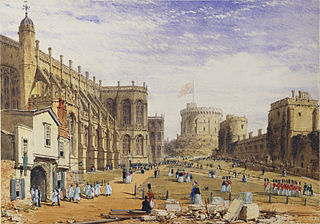 W
WThe Dean and Canons of Windsor are the ecclesiastical body of St George's Chapel, Windsor Castle.
 W
WFrederick Anson (1811-1885) was a British clergyman from the Anson family, who served as Canon of St George's Chapel, Windsor Castle.
 W
WJohn Arundel was a medieval Bishop of Chichester.
 W
WThe Honourable Richard Bagot was an English bishop.
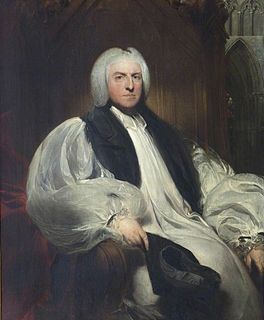 W
WShute Barrington was an English churchman, Bishop of Llandaff in Wales, as well as Bishop of Salisbury and Bishop of Durham in England.
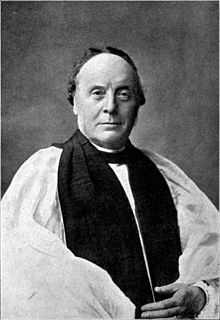 W
WAlfred Barry was the third Bishop of Sydney serving 1884–1889. Over the course of his career, Barry served as headmaster of independent schools, Principal of King's College London university and founded Anglican schools. He officiated at the funeral of Charles Darwin in 1882.
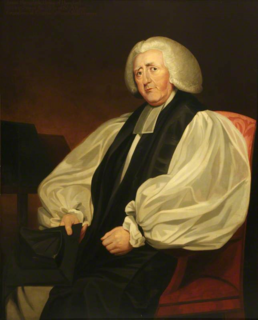 W
WLord James Beauclerk was an Anglican clergyman who served as the Bishop of Hereford from 1746 to 1787.
 W
WWilliam Buller (1735–1796) was an English clergyman who served as Bishop of Exeter from 1792 to 1796.
 W
WDr William Boyd Carpenter was a Church of England cleric who became Bishop of Ripon and Royal Chaplain to Queen Victoria.
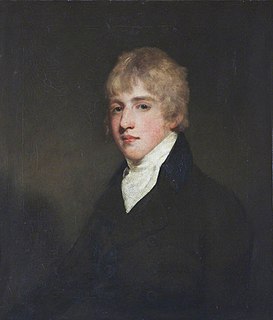 W
WRev. Canon Hon. Henry Cockayne Cust was a Canon of Windsor from 1813 to 1861.
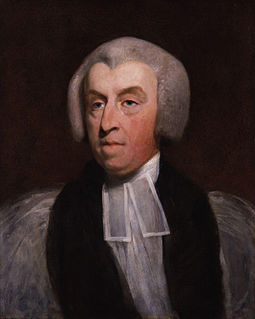 W
WFolliott Herbert Walker Cornewall was an English bishop of three sees.
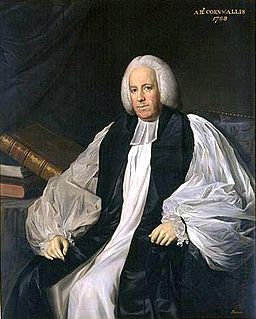 W
WFrederick Cornwallis served as Archbishop of Canterbury, after an illustrious career in the Anglican Church. He was born the seventh son of an aristocratic family.
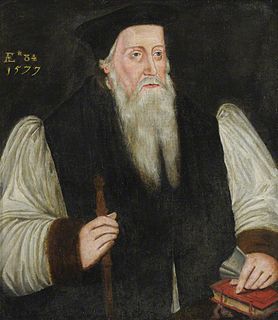 W
WRichard Cox was an English clergyman, who was Dean of Westminster and Bishop of Ely.
 W
WHerbert Croft (1603–1691) was an English churchman, bishop of Hereford from 1661.
 W
WWilliam Derham FRS was an English clergyman, natural theologian, natural philosopher and scientist. He produced the earliest, reasonably accurate measurement of the speed of sound.
 W
WJohn Douglas was a Scottish scholar and Anglican bishop.
 W
WJohn Fisher was a 19th-century Church of England bishop, serving as Bishop of Exeter, then Bishop of Salisbury.
 W
WWilliam Fleetwood was an English preacher, Bishop of St Asaph and Bishop of Ely, remembered by economists and statisticians for constructing a price index in his Chronicon Preciosum of 1707.
 W
WJohn Fountayne, M.A. (Cantab.), DD, (1714–1802) was a Church of England clergyman and the longest serving Dean of York.
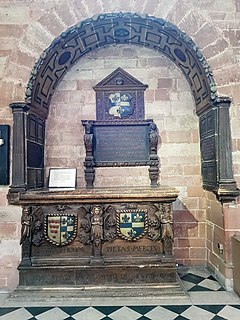 W
WEdmund Freke was an English dean and bishop.
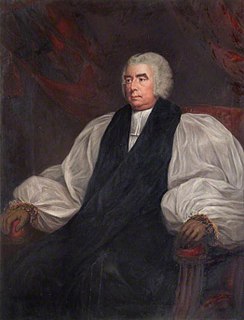 W
WSamuel Goodenough was the Bishop of Carlisle from 1808 until his death in 1827, and an amateur botanist and collector. He is honoured in the scientific names of the plant genus Goodenia and the red-capped robin. In addition, William Kirby's 1802 book on the bees of Engand, page 182, mentions, in Latin, that the cuckoo bee Nomada goodeniana is named after Goodenough with the following words:A viro Reverendo S. Goodenough, LL. D. Canonico Windsoriensi, Botanico summo tum et in Entomologia lynceo, nomen suum haec Apis mutuatur.
 W
WJohn Hales was an English cleric, theologian and writer. An eminent if modest divine and critic, his posthumous works earned him the title of the "Ever-memorable".
 W
WGeorge Hall was an English bishop.
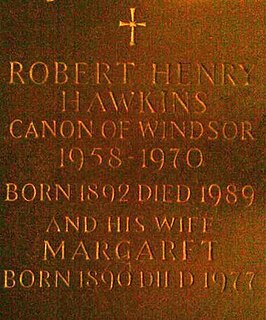 W
WRobert Henry Hawkins was a priest of the Church of England and Canon of Windsor.
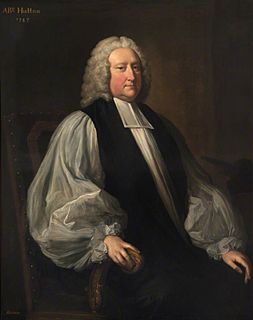 W
WMatthew Hutton was a high churchman in the Church of England, serving as Archbishop of York (1747–1757) and Archbishop of Canterbury (1757–1758).
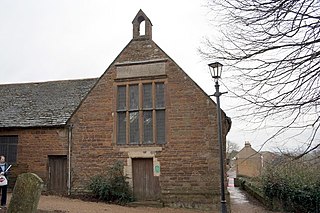 W
WRobert Johnson was a Church of England cleric and the founder of both Oakham School and Uppingham School.
 W
WJohn Keate was an English schoolmaster, and Head Master of Eton College.
 W
WFrederick Keppel was a Church of England clergyman, Bishop of Exeter.
 W
WOliver King was a Bishop of Exeter and Bishop of Bath and Wells who restored Bath Abbey after 1500.
 W
WEdmund Lacey was a medieval Bishop of Hereford and Bishop of Exeter in England.
 W
WEdward Legge was an English churchman and academic. He was the Bishop of Oxford from 1816 and Warden of All Souls College, Oxford, from 1817.
 W
WRoger Lupton was an English lawyer and cleric who served as chaplain to King Henry VII (1485–1509) and to his son King Henry VIII (1509–1547) and was appointed by the former as Provost of Eton College (1503/4–1535).
 W
WHenry William Majendie (1754–1830) was an English Bishop of Chester and Bishop of Bangor.
 W
WRichard Mitford was an English bishop of Chichester from 17 November 1389, consecrated on 10 April 1390, and then bishop of Salisbury. He was translated to the see of Salisbury on 25 October 1395.
 W
WPeter Mews was an English Royalist theologian and bishop. He was a captain captured at Naseby and he later had discussions in Scotland for the Royalist cause. Later made a Bishop he would report on non-conformist families.
 W
WRobert Morton was an English priest and Bishop of Worcester.
 W
WRichard Newcome (Newcombe) was an English bishop of Llandaff and bishop of St Asaph.
 W
WAlexander Nowell was an Anglican priest and theologian. He served as Dean of St Paul's during much of Elizabeth I's reign, and is now remembered for his catechisms.
 W
WAndrew Perne, Vice-Chancellor of Cambridge University and Dean of Ely, was the son of John Perne of East Bilney, Norfolk.
 W
WHenry Dudley Ryder was a prominent English evangelical Anglican bishop in the early years of the nineteenth century. He was the first evangelical to be raised to the Anglican episcopate.
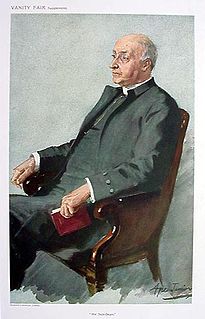 W
WRev. Canon. James Edgar Sheppard was a Canon of Windsor from 1907 to 1921.
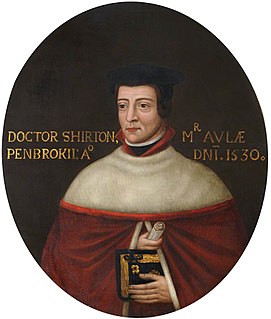 W
WRobert Shorton was an English churchman and academic, first Master of St John's College, Cambridge and Archdeacon of Bath.
 W
WThomas Sprat, FRS was an English churchman and writer, Bishop of Rochester from 1684.
 W
WWilliam Stuart PC was an Anglican prelate who served as the Bishop of St David's in Wales from 1794 to 1800 and then Archbishop of Armagh in Ireland from 1800 until his death.
 W
WRichard Terrick was a Church of England clergyman who served as Bishop of Peterborough 1757–1764 and Bishop of London 1764–1777.
 W
WStephen Edmund Verney was the second Bishop of Repton from 1977 to 1985; and from then on an honorary assistant bishop within the Diocese of Oxford.
 W
WJohn Vesey or Veysey (c.1462–1554) was Bishop of Exeter in Devon, from 1519 until his death in 1554, having been briefly deposed 1551-3 by King Edward VI for his opposition to the Reformation.
 W
WIsaak Vossius, sometimes anglicised Isaac Voss was a Dutch scholar and manuscript collector.
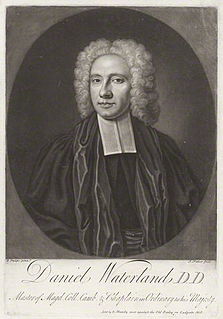 W
WDaniel Cosgrove Waterland was an English theologian. He became Master of Magdalene College, Cambridge in 1714, Chancellor of the Diocese of York in 1722, and Archdeacon of Middlesex in 1730.
 W
WHerbert Westfaling, was Anglican Bishop of Hereford and Vice-Chancellor of the University of Oxford.
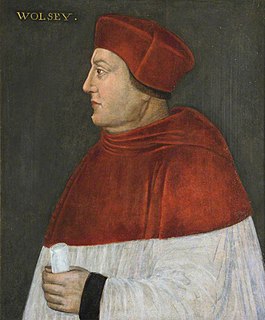 W
WThomas Wolsey was an English statesman and Catholic bishop. When Henry VIII became King of England in 1509, Wolsey became the king's almoner. Wolsey's affairs prospered, and by 1514 he had become the controlling figure in virtually all matters of state. He also held important ecclesiastical appointments. These included the Archbishopric of York—the second most important role in the English church—and that of papal legate. His appointment as a cardinal by Pope Leo X in 1515 gave him precedence over all other English clergy.
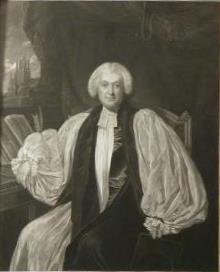 W
WJames Yorke was a British clergyman.